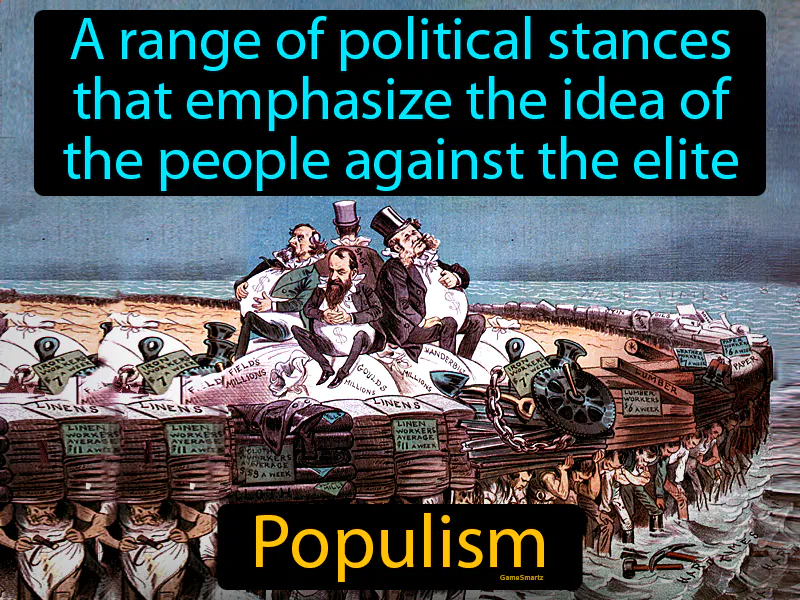Populism
Populism:
In the late 1800s, during Western Expansion, populism emerged as a movement representing farmers and common people who felt ignored by wealthy elites and big businesses. Many farmers faced economic hardships due to falling crop prices and high railroad rates, which the elites benefited from. The Populist Party, formed in 1892, pushed for reforms like government control of railroads and more currency in circulation to help struggling farmers. Today, populism is still relevant as it highlights the tension between regular citizens and powerful elites, often influencing political debates and elections. For example, when people protest for fair wages or against large corporations' influence in politics, they echo populist ideas by demanding more power and fairness for everyday people.

Practice Version

Populism: A range of political stances that emphasize the idea of the people against the elite. Populism. In history, populism often involves leaders claiming to represent the common people against a perceived corrupt or disconnected ruling class.
